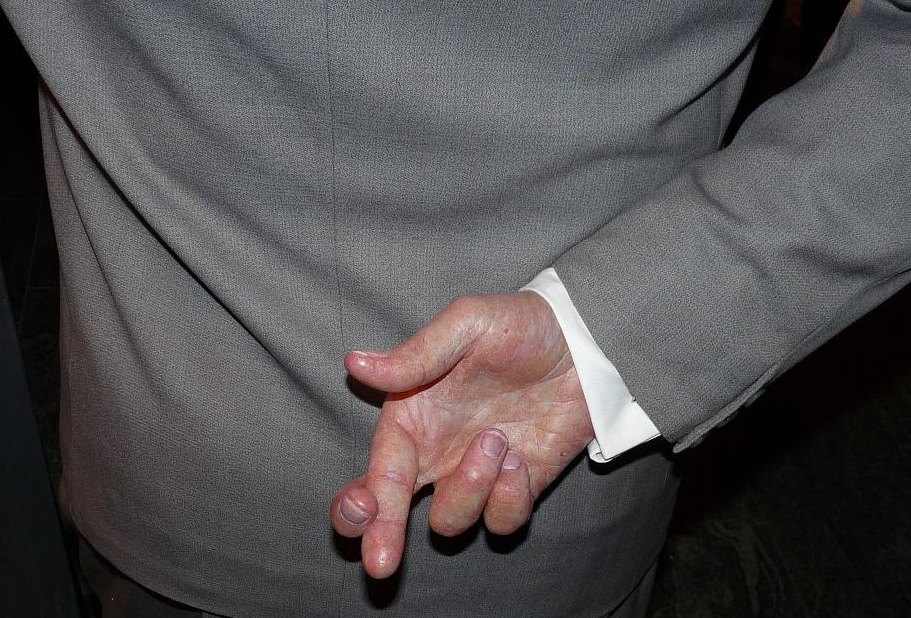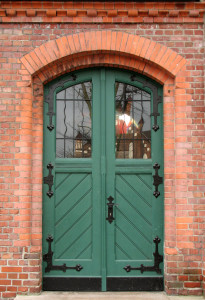We’re continuing in the Sermon on the Mount—Jesus’ “Kingdom Manifesto,” describing God’s desire for His people. In Matthew 5:20 Jesus said our righteousness must exceed that of the scribes and Pharisees, and this section ends in verse 48 with the statement, “You therefore must be perfect, as your heavenly Father is perfect.” This is yet another reminder that we can never live up to God’s standards in our own strength and willpower.
Do Not Swear
“Again you have heard that it was said to those of old, ‘You shall not swear falsely, but shall perform to the Lord what you have sworn’” (v. 33)
Jesus quotes a couple verses from the Old Testament Law (Lev. 19:12, Num. 30:2, et al) to introduce this subject. In our culture, it is quite common to hear someone say, “I swear to God,” even about relatively minor things. In Jewish culture this was not the case. They would have considered this taking the name of God in vain. Oaths were taken more seriously than they are today. We should take God’s name more seriously than we do. Jesus is not limiting this to formal oaths, but any promises and commitments. Anything that we say, knowing that we are lying, is a sin.
As with the previous subjects, Jesus expands the application of the Law:
“But I say to you, Do not take an oath at all, either by heaven, for it is the throne of God, or by the earth, for it is his footstool, or by Jerusalem, for it is the city of the great King. And do not take an oath by your head, for you cannot make one hair white or black” (vv. 34-36).
Jesus says that oaths are inappropriate for His followers. In another example that helps to explain this passage, later in His ministry Jesus confronted the scribes and Pharisees and said:
“Woe to you, blind guides, who say, ‘If anyone swears by the temple, it is nothing, but if anyone swears by the gold of the temple, he is bound by his oath.’ You blind fools! For which is greater, the gold or the temple that has made the gold sacred? And you say, ‘If anyone swears by the altar, it is nothing, but if anyone swears by the gift that is on the altar, he is bound by his oath’” (23:16-18).
They were essentially playing word games in saying that an oath didn’t count if it wasn’t made using the right formula. It’s not unlike children in our age crossing their fingers behind their backs to invalidate a promise. Jesus’ point is that God is everywhere and knows everything, so any oath or vow is made in His presence. Anything you swear by is as binding as swearing by God Himself. We can’t pick and choose what makes a promise valid or not.
Yes or No
“Let what you say be simply ‘Yes’ or ‘No’; anything more than this comes from evil” (v. 37).
Truth should be foremost in our minds and words. In the Sermon on the Mount, we see God’s perfect design for love and truth. We are designed to live truthfully. However, we live in a dishonest world because of the Fall in Genesis 3. For the Christian, oaths should be unnecessary because we are known for our honesty. Even swearing on the Bible in court is irrelevant unless people are assuming that we’ll lie if we aren’t under oath. If you have to swear to be taken seriously, then you are condemned already.
We all struggle to some degree with holding onto complete truth in every situation. Perhaps one of the most common deceptions in the church is pretending that we have our act together when we know that we are hiding our sin and weakness.
There’s no benefit to visiting a doctor if you don’t admit you are sick. There’s no benefit to having a teacher if you don’t admit you are lacking knowledge. There’s no benefit to following Jesus if you don’t admit you are a sinner in need of a Savior. We’re all in the same boat. Our self-righteousness is a weed that keep growing back up. We need regular fellowship to encourage, equip, and edify one another in the truth of God’s Word. And we need to regularly participate in the Lord’s Supper as a reminder that we can confess our sin and weakness and receive God’s forgiveness and grace. Let us be eager to hold tightly to truth together.
“But above all, my brothers, do not swear, either by heaven or by earth or by any other oath, but let your ‘yes’ be yes and your ‘no’ be no, so that you may not fall under condemnation” (James 5:12.
Discussion Questions
1) Discuss the Proverbs that were read in the service: 4:24, 6:16-19, 12:17-19. How do these verses help to flesh out our understanding of truth and deceit?
2) Do you think there is such a thing as a “white lie”? Have you ever told a “white lie” that got out of hand? What did you do to correct it?
3) Consider John 8:44. What does this say about the source of lies and the character of liars? Does this change your perspective on what is or is not acceptable for Christians?





